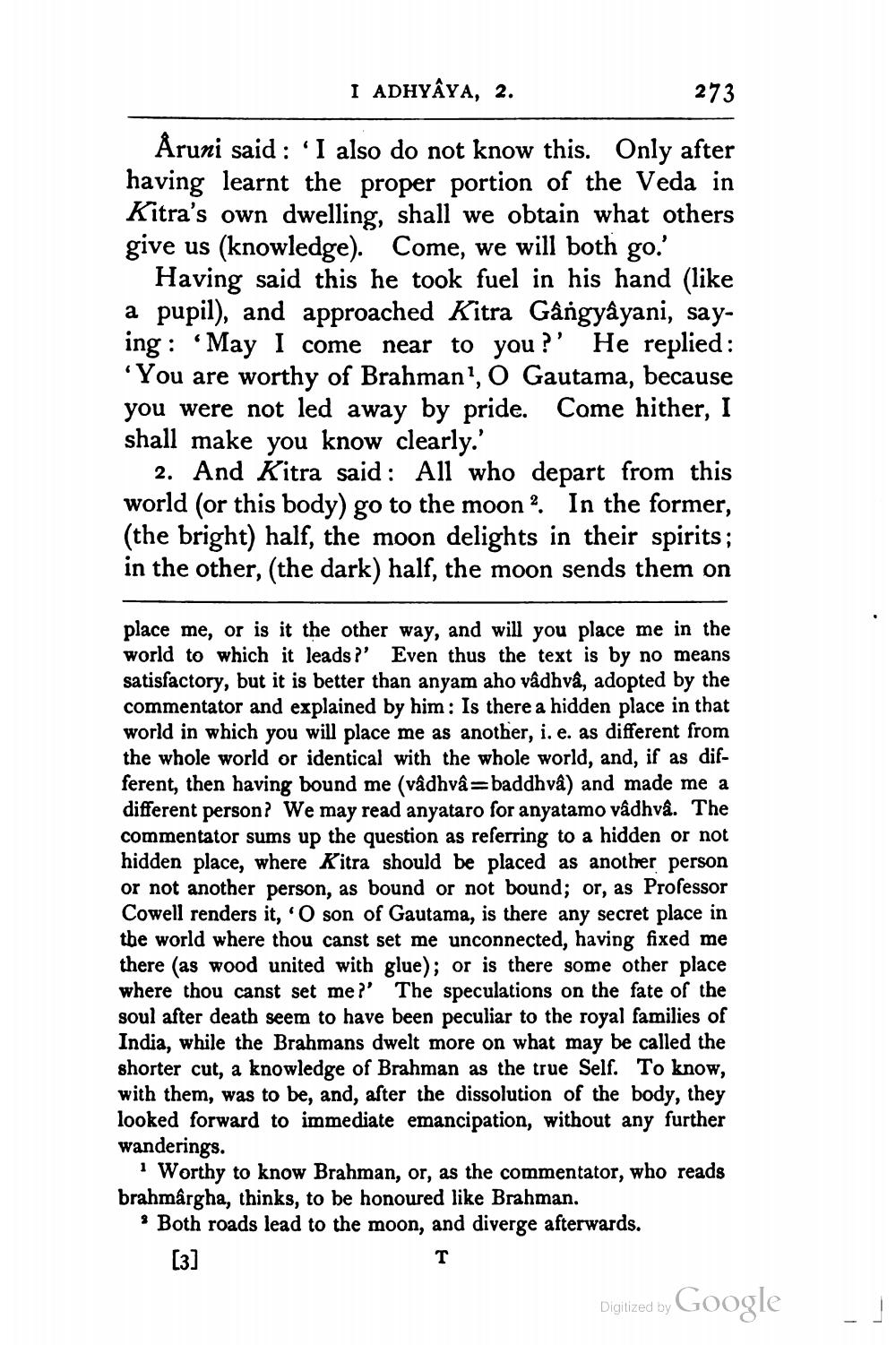________________
I ADHYÂYA, 2.
273
Åruni said: 'I also do not know this. Only after having learnt the proper portion of the Veda in Kitra's own dwelling, shall we obtain what others give us (knowledge). Come, we will both go.'
Having said this he took fuel in his hand (like a pupil), and approached Kitra Gângyâyani, saying: “May I come near to you?' He replied: "You are worthy of Brahman', O Gautama, because you were not led away by pride. Come hither, I shall make you know clearly.'
2. And Kitra said: All who depart from this world (or this body) go to the moon 2. In the former, (the bright) half, the moon delights in their spirits; in the other, (the dark) half, the moon sends them on
place me, or is it the other way, and will you place me in the world to which it leads?' Even thus the text is by no means satisfactory, but it is better than anyam aho vâdhva, adopted by the commentator and explained by him: Is there a hidden place in that world in which you will place me as another, i.e. as different from the whole world or identical with the whole world, and, if as different, then having bound me (vâdhvâ=baddhvá) and made me a different person? We may read anyataro for anyatamo vâdhvâ. The commentator sums up the question as referring to a hidden or not hidden place, where Kitra should be placed as another person or not another person, as bound or not bound; or, as Professor Cowell renders it, O son of Gautama, is there any secret place in the world where thou canst set me unconnected, having fixed me there (as wood united with glue); or is there some other place where thou canst set me?' The speculations on the fate of the soul after death seem to have been peculiar to the royal families of India, while the Brahmans dwelt more on what may be called the shorter cut, a knowledge of Brahman as the true Self. To know, with them, was to be, and, after the dissolution of the body, they looked forward to immediate emancipation, without any further wanderings.
1 Worthy to know Brahman, or, as the commentator, who reads brahmârgha, thinks, to be honoured like Brahman. 9 Both roads lead to the moon, and diverge afterwards. [3]
Digitized by Google




